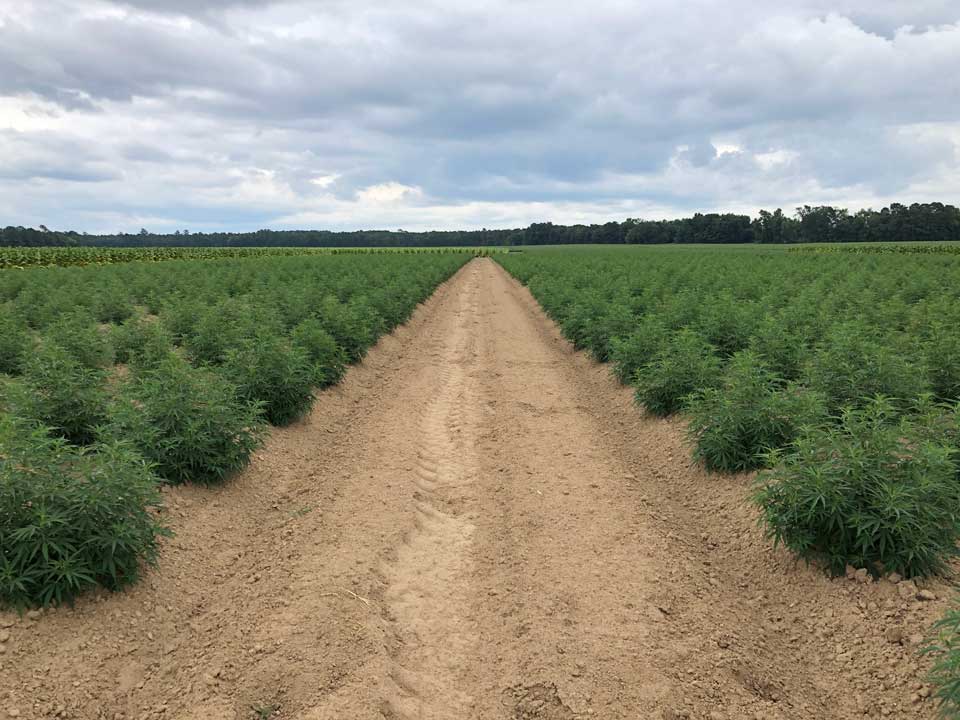It is more important than ever to stay lean and keep a close eye on input costs if you are considering growing hemp for CBD.
We have spoken to and worked with hundreds of farmers to understand the most common pain points throughout the growing process. It can be hard to decide what is needed and what is not when you’re dealing with a new crop and a strong desire to protect your bottom line.
Farmers are often at the mercy of “master growers” who primarily grow indoors and who are not very familiar with outdoor row production of crops. One thing is certain: hemp grown outdoors for CBD biomass production should not be managed the same way as cannabis grown indoors for the high THC market.
Fertilizer Costs
You should not be spending $500+ per acre on fertilizer. Estimates from both the University of Kentucky and North Carolina State University have fertilizer costs around $100.
If you are a conventional grower (not pursuing organic certification), you should use the same bulk fertilizers used for tobacco or cotton. An organic fertilizer program can be more expensive, but you still should not be buying bottled nutrients that you would find in a hydroponic supply shop.
Weed Control
Dealing with weeds in your field is very important. Be mindful to set up your field to make weed control easy and not labor intensive. The tobacco model, for instance, uses cultivators that dig up weeds in between the rows — up until the plants are around 24” tall. These cultivators can handle multiple rows at a time and are a very cost effective way to deal with weeds.
If you can’t invest in a cultivator, white plastic mulch is the next best option. We would suggest neatly spacing your rows so that a riding lawn mower can make a pass between the rows.
Our growing guide has pictures and more information on the tobacco model vs. plastic culture. Sign up for our emails to receive your free copy of Triangle Hemp’s Growing Guide!
Organic Sprays
Farmers need to be prepared to handle whatever nature throws at them. It is important to familiarize yourself with possible pests and diseases that could attack. Once your plant begins to be attacked, its defenses will be weakened, and will be even more susceptible to damage.
Choose your spraying equipment wisely! Pressure and particle size are two key considerations when choosing your spray equipment. The ability to penetrate to the very center of the plant is very important. When the plant is large, more pressure and a finer particle size is needed.
Also, think about tank size and how much ground you need to cover. Even the best backpack sprayers/blowers will need to be filled up countless times to effectively cover an acre. When you are under attack, sometimes you will need to spray multiple times a week. Those labor hours can really add up.
If you are not getting good coverage, then you will be spending even more on sprays because you won’t be effectively treating the problem. Be mindful that organic (OMRI) sprays are very rarely “curative.” They do a good job of preventing problems but often are mediocre at taking out large populations effectively. Daily scouting for pests and disease will pay off in spades.
Click here for the microscope we use — we highly recommend purchasing one yourself.
Labor Costs
All of the above information in one way or another ties into labor costs, and even mental health. It can be very stressful to feel as though you are constantly under attack. Whether it is from mutant weeds or the unscrupulous attacks from pests, you need to be prepared.
The other major areas where labor is high: transplanting, harvesting, and drying.
We often mention repurposing tobacco equipment. It could be wise to reach out to your neighbors who are growing tobacco to see about working together, as these equipment costs can really add up.
For transplanting, carousel transplanters or most tobacco transplanters work great and save time.
Equipment used for harvesting hemp is slowly starting to become more readily available, but is really still in its infancy.
Tobacco drying barns are an excellent way to dry at the end of the year and far less labor intensive as compared to hanging plants one by one in a warehouse. They are also extremely space efficient.
Stripping plants at the end of the year is the final step and can be one of the most labor intensive parts of the whole year. We do not see a future where we continue to hand strip plants. Machines are now available that can handle multiple acres in less than a day.
Plant Costs
The final item we’ll touch on is the cost of plants. Current options available to farmers are sprouting their own feminized seed, or purchasing seedlings or clones from a nursery.
Good genetics first and foremost can make or break your season. Yes, plants are a major line item on the budget — but I’ve seen farmers have major issues with untested genetics just because they were trying to save a little bit of money.
Purchasing feminized seed and sprouting it yourself is by far the most cost effective option. It does, however, come with its own challenges and infrastructure needs. We have released a germination guide to help out with this process.
To get your free copy of our Germination Guide, sign up to receive our emails here and we’ll deliver a copy to your inbox!
Seedlings are the next cheapest option, and clones right behind that. After talking to farmers about what they like best, it’s not as black and white as just choosing the least expensive option. It’s hard to ignore the safety and security that comes with a clone that has performed well for years.
No matter which option you choose, make sure you are working with a provider you can trust.
We are in the middle of a tough time in this industry. If you want to survive, you will need to take a microscope to your budgets and cut the fat. Be prepared so that you are not caught off guard. Whether its weeds, pest/diseases or storms, having healthy plants — strong genetics and good planning will keep you ahead of the rest.


